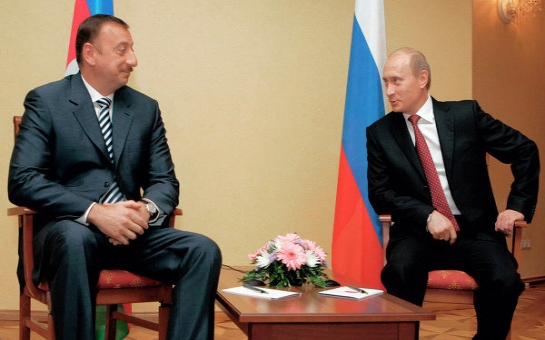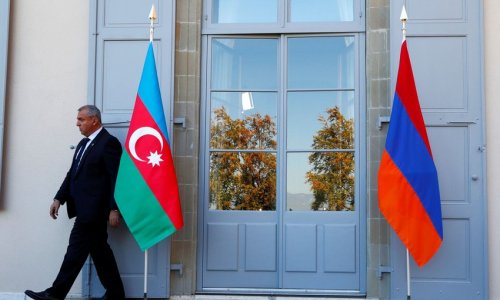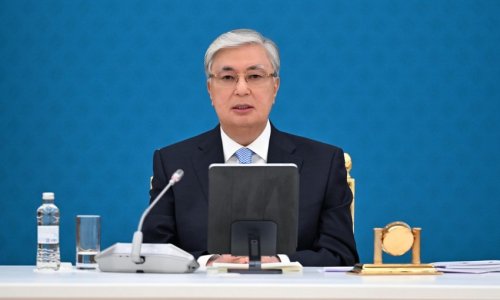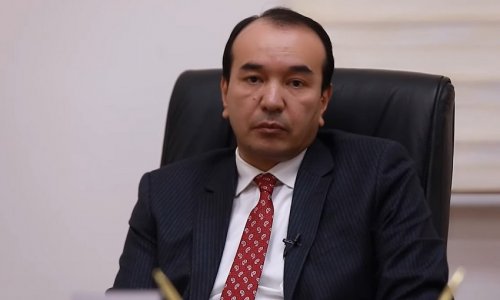(Platts) - In Russia, energy and politics are rarelyfar removed from each other. Moscow is renowned for its use of oil and gas as atool (or a weapon, depending on how you look at it) to get its own way,particularly with its former Soviet neighbors.
Georgia, the Baltic countries, Armeniaand Kyrgyzstan are just some of the ex-Soviet Union states stung by Moscow overenergy. And Ukraine’s treatment has over the past 10 years seemed sometimesbrutal, with Russia leaving it out in the cold by switching off gas suppliesbecause of price disputes.
Now, it seems, it is Azerbaijan’s turn.
Russia’s relations with Baku have been strained attimes. Moscow was scathing over the construction of the Baku-Tbilisi-Ceyhan oilexport pipeline, launched in 2006, which offered a brand new route for Caspianoil supplies to European and global markets and skipped Russia.
Russia’s own Caspian route, from Baku tothe Black Sea port of Novorossiisk, suddenly had less demand and less value asthe export pipeline of choice out of the region.
There has also been some standoffs overAzerbaijan’s vast gas riches. Baku is aiming to expand massively its gasexports to Europe from the giant Shah Deniz field. This gas will competedirectly with Russian gas.
Moscow’s attention to the dilemma hasbeen considered. It even made an ambitious offer to Baku in the late 2000′s tobuy all of Azerbaijan’s present and future gas output.
Azerbaijan, obviously, had other ideas,and it is on schedule to begin the expanded gas supplies to Europe from 2016/2017.
Certainly Azerbaijan has been a hard nutto crack for Moscow.
But now a decision to shut offAzerbaijan’s outlet for crude via Russia has brought the fragility ofMoscow-Baku relations back into sharp focus.
As of February next year, the 250-km oilpipeline section linking Azerbaijan with the Russian export terminal ofNovorossiisk will be shut, the final nail in the coffin for exports of Azericrude via Russia.
The move, announced by Russia’sstate-owned pipeline operator Transneft this month, was not unexpected, but thedecision could still be considered surprising given Moscow’s pledge in Augustto try to improve energy relations with Baku.
The trouble started in May this yearwhen Russia cancelled the agreement covering shipments of Azeri crude via theBaku-Novorossiisk route, saying Azerbaijan was shipping fewer volumes thanagreed.
This, in turn, was causing Transneft toincur unacceptable losses, the company said, estimated to be as high as $50million per year.
The figures do stack up: Transneft hassaid Azerbaijan was expected to send just 1.8 million mt via the route thisyear even though the supply agreement stipulates that Azerbaijan must ship 5million mt/year.
Azerbaijan has been paying a tariff of$15.67/mt for transit via the pipeline, and the terms of the agreement have notchanged since it came into force in 1996.
Baku has increasingly been using thestrategic Baku-Tbilisi-Ceyhan line for its exports, which is cheaper and getsthe oil directly to the Mediterranean Sea.
It also avoids crossing Russianterritory, a key consideration behind the pipeline’s realization.
Transneft offered new tariffs and volumeterms to the Azeris to continue using the Baku-Novorssiisk line earlier thisyear, but Baku rejected them.
So Transneft decided to act firmly anddecisively, and opted to close the section of the pipeline when the currentsupply contract expires in February.
This does seem to have come at a strangetime though, given that Russian President Vladimir Putin and Igor Sechin, thehead of Russia’s biggest oil company Rosneft, visited Baku in August withenergy cooperation high on the agenda.
They left with some provisionalagreements, and a vow to cooperate on projects, but nothing concrete has comeof it so far.
Could it be, then, that Russia’sdecision to close the pipeline is political? To push Azerbaijan into morecooperation? Or was it purely a Transneft decision based on pureeconomics?
Baku may even be playing a bit ofpolitics itself, refusing to give into its mighty northern neighbor and playball.
In the meantime, Azerbaijan iscontinuing with its strategy of maximizing exports via the BTC line. Itsexports from Ceyhan in 2012 averaged just under 600,000 b/d, while Black Seaexports were around 100,000 b/d.
Socar raised its Ceyhan loading programin the autumn for Azeri Light and according to a copy of the grade’s loadingschedule, loadings of Azeri Light out of Ceyhan are set to reach 21.85 millionbarrels in December, or an average of just over 700,000 b/d.
So it looks like Azerbaijan can managequite happily without its Russian export option, at least for now.
ANN.Az











